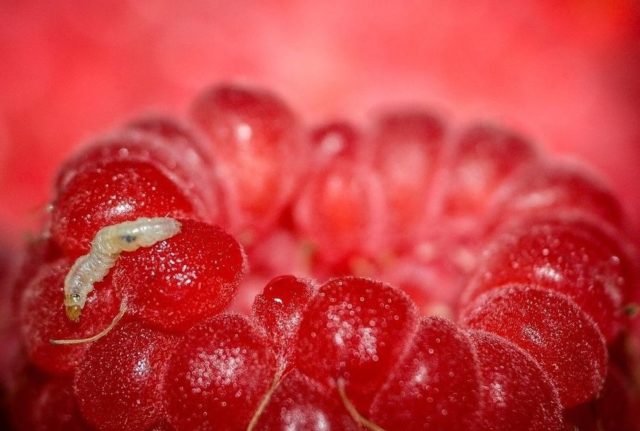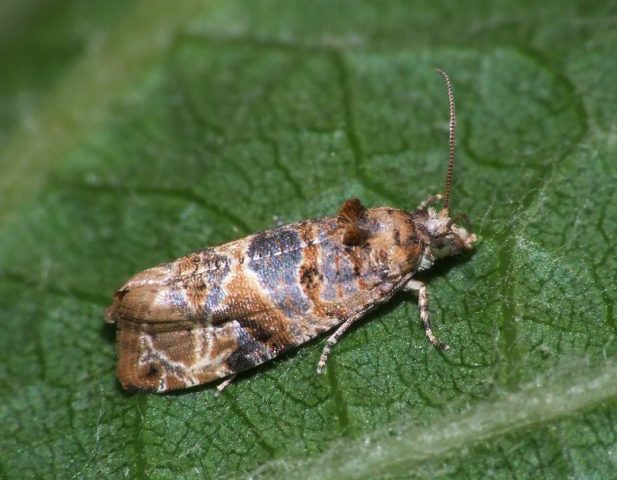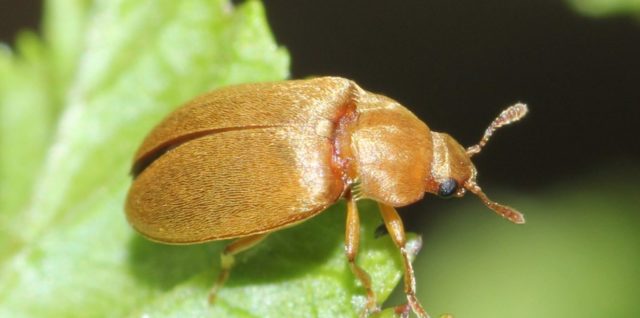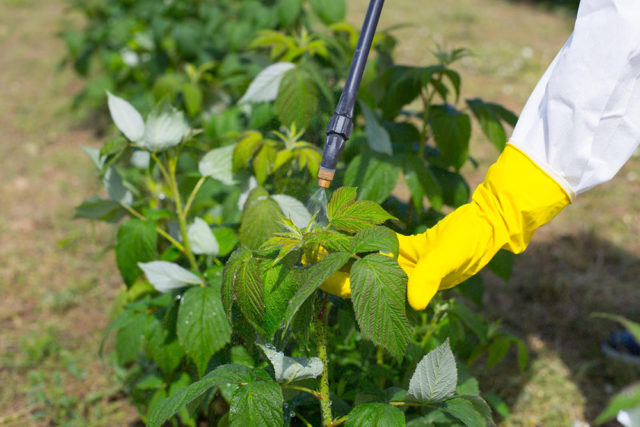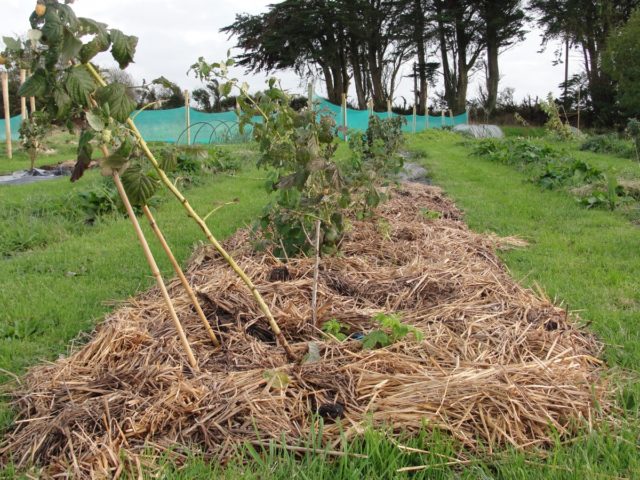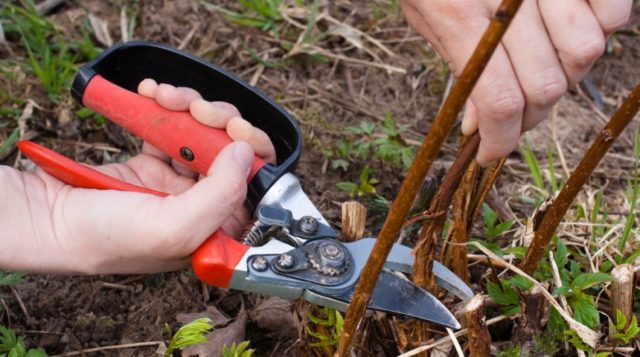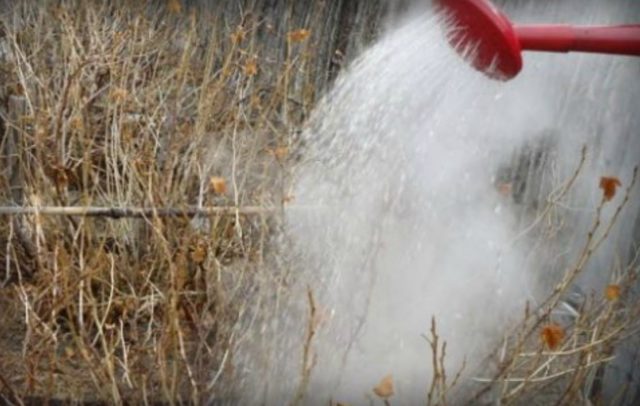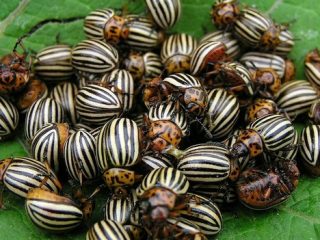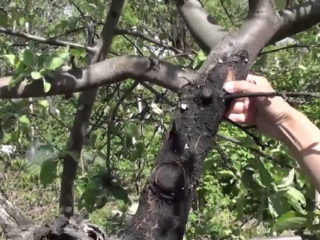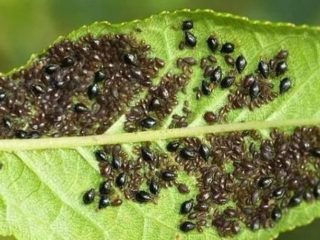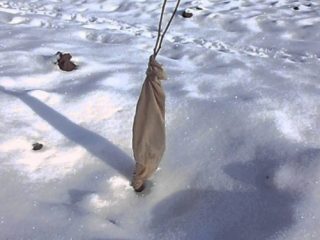Content
Worms in raspberries are a pretty serious problem for many gardeners. Often, this attack can ruin the whole impression of a bountiful harvest. Indeed, it is extremely unpleasant to see white worms crawling among the red juicy berries. However, there is a way out of this situation. To rid raspberries from worms, it is necessary to carry out a number of preventive measures, as well as to treat the plantings with special preparations.
Why are raspberries wormy
Any fruit is a kind of accumulator of nutrients. Therefore, almost every fruit tree or shrub has insect pests. Parasitizing fruits is the easiest way for insects to breed offspring and provide them with the necessary amount of food.
Unfortunately, raspberries are no exception. The berries of this shrub have a good supply of nutrients, so pests use them to breed their offspring.
What pests live in raspberries
Strictly speaking, not worms live in raspberries, but larvae, moreover, several types of insects. One of them is the grape leafworm. This is a small butterfly, the larvae of which can develop not only in raspberries, but also on currants, grapes, and thorns.
The insect is quite fertile, one mature individual can lay eggs in 70 flower ovaries or berries. The larvae hatching after 6-10 days develop internally within 2 weeks, while actively feeding on the contents of the fetus. Due to damage to the integrity of the shells of the berry, its rotting occurs. The larvae are white, have a segmented body about 1 cm long with a dark head.
The second insect pest, the larvae of which develop in raspberries, is the raspberry beetle. The insect is small (about 5 mm), it has a pubescent body of a brown-red color.
The clutch of a female beetle usually contains about 30 eggs. They hatch yellowish larvae with a dark head. Their length is 5-6 mm. The larvae feed on the pulp of raspberries, then gnaw the fruit, fall to the ground and pupate. During the season, only one development cycle of the raspberry beetle takes place.
What to do if raspberries are wormy
It is much easier to prevent the appearance of worms in raspberries than to fight them later. Unfortunately, often their presence in berries is detected only during the harvesting process. At this time, special preparations cannot be used, otherwise the fruits cannot be eaten. It remains only to manually sort the berries in order to then cook jam or compote from them. To speed up the process, the fruits are poured with slightly salted cold water. In half an hour, the worms will leave their hiding places and float to the surface. It remains to carefully collect and destroy them, and rinse the berries with clean water and put them into processing.
How to process raspberries from worms in berries
To treat raspberries from pests, you can use both ready-made preparations of industrial production and a variety of folk remedies.
Spraying raspberries from worms with insecticides
It is necessary to use insecticides if a pest is detected at an early stage.In addition, the use of chemicals is justified if there were a lot of wormy raspberries in the previous season. Before the beginning of the budding phase, plants are treated with the following preparations:
- Actellic.
- Bi-58.
- Inta-Vir
- Spark.
- Karbofos.
- Kinmix.
- Confidor.
- Phosbecid.
- Fufanon.
- Fury.
The processing is repeated, as a rule, twice. Application intervals and required dosages are indicated on the drug packaging.
How to get rid of worms in raspberries with folk remedies
Among the folk remedies for processing raspberries from worms in berries, there are many quite effective ones. Here is some of them:
- Boiling water treatment. In early spring, planting raspberries is sprayed with hot water. The procedure not only kills the larvae of pests, but also strengthens the plant's immunity.
- Spraying with potassium permanganate. 10 liters of water will require 0.5 g of potassium permanganate. The diluted solution should be slightly pink.
- Tincture of tobacco (makhorka). 200 g of tobacco leaves are poured into 10 liters of boiling water. After the infusion has cooled to normal temperature, it can be filtered and used to spray the raspberries. The effect will be better if you give the tobacco leaves more time to infuse, at least 1 day.
- Infusion of tansy. Dried grass in the amount of 350 g is poured into 10 liters of boiling water. It is desirable that the solution boil for another 20-30 minutes. After that, it is cooled, filtered and used to process raspberries.
- Mustard infusion. To prepare a solution, 100 g of mustard powder is poured with boiling water and stirred until sour cream. Then the composition is added to 1 bucket of water, stirred well and sprayed.
- 1 time in 10 days for processing raspberry bushes can be used aqueous soda solution (1 tbsp. L. In a bucket of water). The procedure can be performed many times until fruit ovaries appear on the bush.
Agrotechnical measures to obtain a harvest of raspberries without worms
To reduce the number of white worms in raspberries to a minimum, the necessary measures to combat them must be taken in advance. It is very important to keep the raspberry berry clean, cut out dried shoots in a timely manner, remove fallen leaves, debris and plant debris. Mulching the soil is of great importance. Covering the root space in early spring with a layer of mulch made from peat, humus or rotted manure will preserve moisture in the soil and serve as feeding raspberries. In addition, the layer of mulch will be an additional obstacle that hinders the emergence of overwintered pests from the soil, which will significantly reduce their population. But in late autumn, it is better to remove the mulching layer, and dig up the root zone of the raspberry tree. In this case, most of the larvae of the raspberry beetle will freeze out in winter.
To protect against the leafworm butterfly, many gardeners cover their raspberry plantings with gauze or non-woven material that allows air to pass through. In this way, the pest loses access to fruit ovaries and berries, making it impossible to lay eggs. Special traps effectively destroy leafworm butterflies. If the appearance of a raspberry beetle is noted on the plantings, then these insects can simply be collected in the early morning. While it is cool outside, beetles sit motionless on raspberry leaves, and it will not be difficult to shake them off onto the stored newspaper. You can simply spread plastic wrap under the raspberries and shake the entire bush.
Experienced gardening tips
Long-term practice helps to successfully fight pests on raspberries. Here are some tips from experienced gardeners to help preserve crops and prevent worms from appearing in berries.
- So that raspberries are not wormy, it is better to grow them on trellises. Free-growing bushes quickly thicken, and this provokes the appearance of worms in the berries.The trellis method ensures that the required spacing between the raspberry bushes is maintained.
- Old, fruiting shoots must be cut out. Dry branches are a breeding ground for pests.
- In early spring planting raspberries, it is advisable to treat them with fungicides (Bordeaux liquid). This is an excellent prevention of both diseases and pests.
- Many raspberry worm spray chemicals cannot be used in mixtures or at the same time. When carrying out a stepwise (multiple) treatment, the preparations must be alternated, otherwise the insect pests may develop immunity.
- Before preparing a spray solution, be sure to study and strictly observe the precautions.
- On remontant varieties of raspberries, worms in berries are much less common. This is worth paying attention to when choosing a planting material.
- The pest population and the number of worms in berries can be significantly reduced by using wood ash as a top dressing for raspberries.
- If raspberries grow in open, well-ventilated places, then wormy berries are much less common.
- Treatment of raspberries with hot water in early spring and autumn kills not only pests, but also pathogens of fungal diseases.
- When collecting beetles by hand, it is better to use rubber gloves, otherwise your hands will smell long and unpleasant.
An interesting video on how to grow raspberries without worms can be viewed at the link below:
Conclusion
It is not difficult to rid raspberries from worms if you regularly take care of the plantings and do not start them. Most of the activities for this are not difficult and even beginner gardeners can do. It is important to perform them regularly and in full, then the result will pleasantly surprise.
